In a world where commodities' prices are seasonal -- that is they rise and fall in predictable patterns -- this way of looking at inflation makes sense. But in a word where commodity prices continually increase on a multi-year basis, this policy of focusing solely on core inflation ranks up there with "we can win a land war in Asia" as one of the dumbest ideas around.
As the following smattering of news stories indicate, commodity price increases are not an ivory tower theoretical issue; they are starting to hit businesses in practical, day-to-day ways.
From the BLS' latest inflation report:
The index for energy, which advanced at annual rates of 22.9 and 32.9 percent in the first two quarters, declined at a 14.8 percent rate in the third quarter of 2007. Thus far this year, energy costs have risen at an 11.7 percent SAAR after increasing 2.9 percent in all of 2006. In the first nine months of 2007, petroleum-based energy costs (energy commodities) advanced at a 20.6 percent rate and charges for energy services (gas and electricity) increased at a 1.3 percent rate. The food index rose at a 5.7 percent SAAR in the first nine months of 2007 after advancing 2.1 percent in all of 2006. Grocery store food prices increased at a 6.7 percent annual rate in the first nine months of 2007, reflecting acceleration over the last year in each of the six major groups. These increases ranged from annual rates of 4.0 percent in the index for other food at home to 17.7 percent in the index for dairy products.
From Forbes:
Oil prices affect every corner of the market, even the most quotidian ones. And with oil at $96 a barrel one unobtrusive sector suffering is containers and packaging.
Packagers are heavy consumers of petrochemicals, which are basically plastic. So the higher the oil price, the higher plastic resin prices are. So packagers that use plastic resin have been hit hard.
From the Motley Fool:
But in Kraft's case, the top-line "momentum" didn't trickle down to the bottom line. Earnings per share on a reported basis were $0.38, a decline of 15.6% from the prior year. Excluding unusual items, the picture looks somewhat better -- $0.44, or a decline of 4.3%. The one scrap of good news in these lower earnings: The company did beat consensus analyst estimates by $0.02 per share, which propelled the stock higher shortly after the release.
The earnings culprit is "higher input costs," meaning that dairy raw material costs rose more quickly than the company could hike its prices to compensate. For example, raw material costs to make cheese, a key product for Kraft, have skyrocketed 40%.
From CNBC:
Consumer products maker Procter & Gamble Co. said Tuesday its first-quarter profit rose 14 percent, but said rising commodity, energy and product investment costs will hurt its second-quarter margins.
And as the charts below show, price increases caused by commodity inflation are hear to stay.
Wheat:
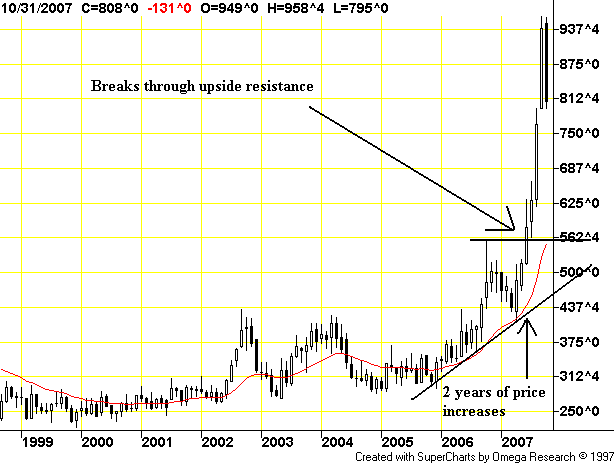
Soybeans
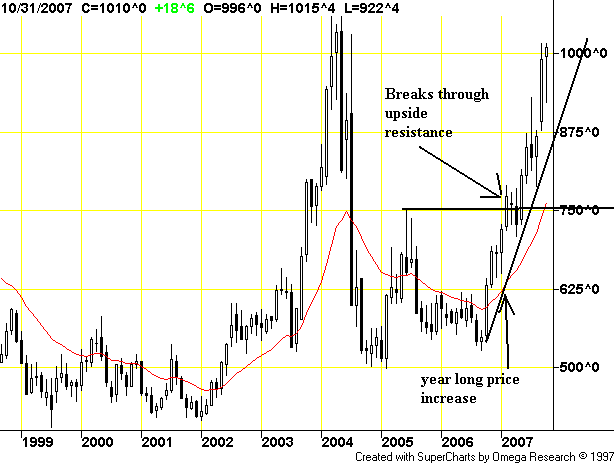
Oats
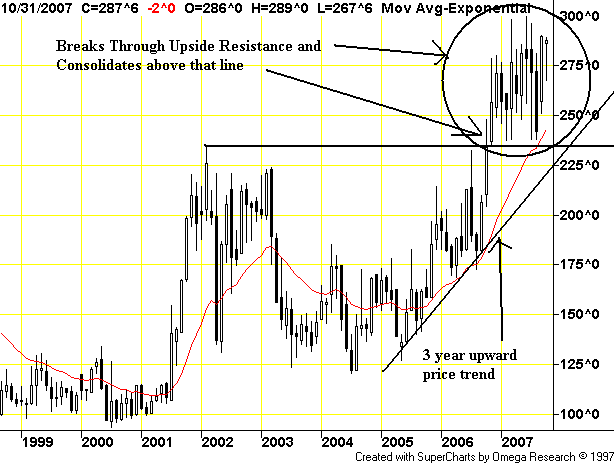
Corn
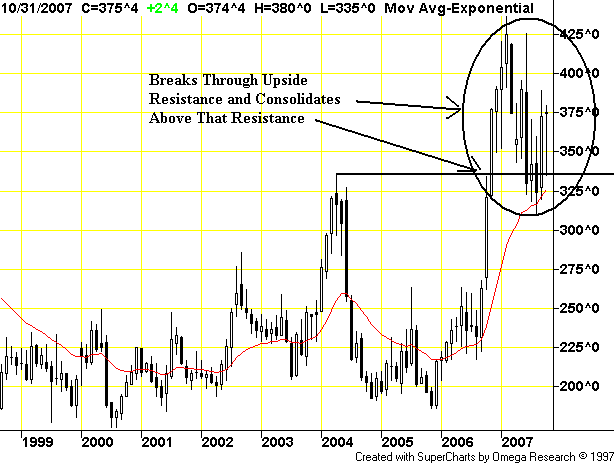
Oil
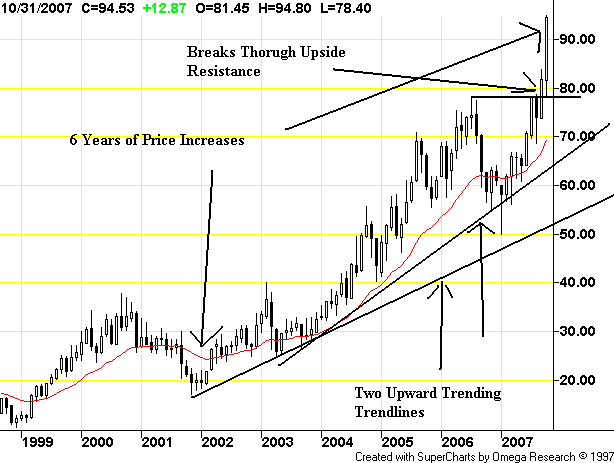
Propane
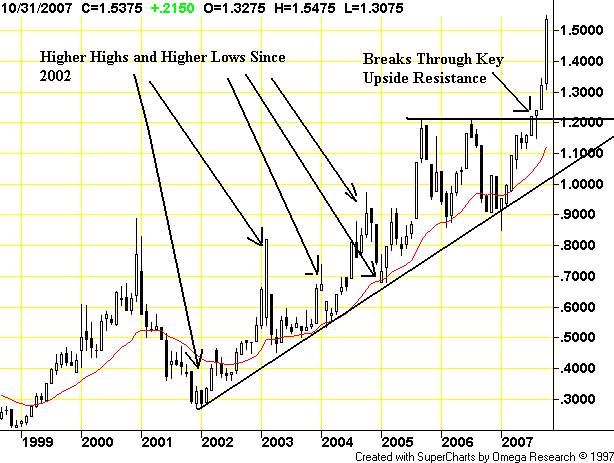
Heating Oil
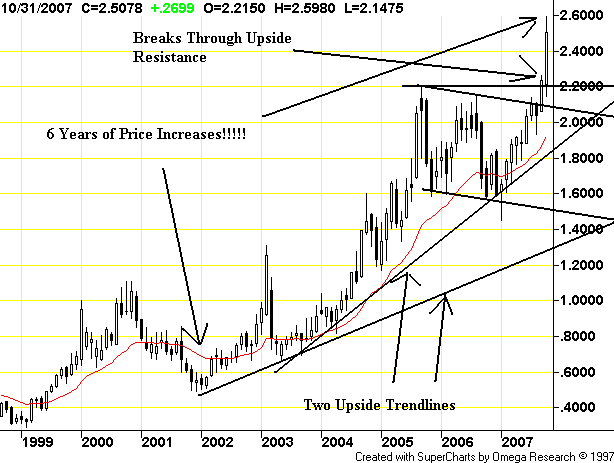
Thank God none of these multi-year price increases have anything to do with inflation. Then we'd really be in trouble.